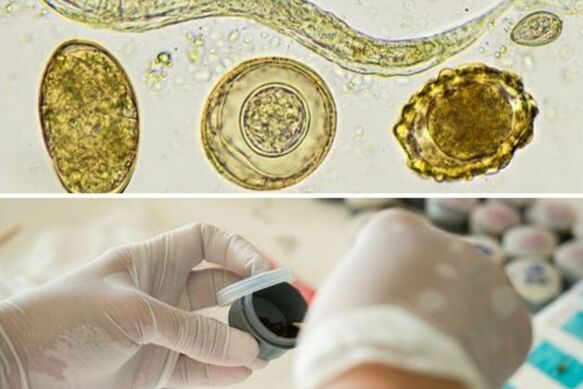
Parasites in the body exist at the expense of trace elements and food in our intestines. There are many types of them. The most common are tapeworms, worms, trichophytosis, and trichocephalus. From the abundance of parasite species, the symptoms of problems in humans also differ. For example, there are parasites that make us hungry by eating the food we have eaten, others cause anemia by feeding on blood cells, and still others that lay eggs in the body causing itching and insomnia. Therefore, the most important thing in parasite treatment is to find out the cause (parasites) that is causing your body to get into trouble.
Signs of the presence of parasites in the body
- the appearance of constipation or diarrhea, possibly other signs of improper bowel function;
- if you travel to other countries you will develop diarrhea;
- your bowel function has changed after food poisoning;
- You have trouble sleeping, wake up often;
- there are spots on the skin that are not associated with allergies or similar skin diseases;
- grind your teeth while sleeping;
- there is aching pains in joints and muscles;
- Fatigue, frequent depression and periodic attacks of apathy;
- after eating you feel hungry, there is no satiety of the body;
- there was anemia due to iron deficiency.
As we can see, the symptoms are completely different, and some of them are attributed to a different disease by people, and they may not even think of parasites.
How to identify the parasite
First, pay attention to how you are feeling, which specifically causes anxiety. If you have intestinal problems, be it constipation or diarrhea, restless sleep, itchy skin, muscle pain, you should consult your doctor. All difficulties with the body in the presence of parasites are associated with the release of toxins through them, which adversely affect the normal functioning of the human body. And trouble sleeping and creaking teeth are signs of anxiety as the body speaks of the problem. Stool analysis remains the primary method for detecting parasites. A distinction is made between a standard analysis and a detailed analysis, which is used in medicine for functional disorders. Their main difference is in accuracy. Standard analysis is only able to identify a parasite if it is alive and active. Then, if the pest has died or is in hibernation due to the end of its life cycle, the standard method will not work. The result will be negative and you can be sure that you will not have any harmful microorganisms, although it will not. In a detailed analysis, there is no such problem because it uses the polymerase chain reaction method. The method allows you to identify the parasite in any condition and does not depend on the laboratory assistant's ability to see the pest through a microscope. Thanks to this approach, patients who have received a standard negative analysis after the PCR are surprised by unwanted "roommates" who then enable them to solve the problem with their health.
Treatment methods
The necessary method of treatment is prescribed by the doctor after receiving the test result. The course of prescribed drugs depends on what type of parasite is found in you, because what destroys one pest does not affect the other at all. However, there are cases when it is not possible to identify a harmful microorganism, then the doctor will prescribe a mixture of different herbs. The most common are magnesia, tribulus extract, barberry and grapefruit extract, annual wormwood infusion, walnut extract and bearberry extract. All of these ingredients are sold in pharmacies. The mixtures work by creating bacteria that are beneficial to the intestines and that is exactly what they fight against microorganisms that are harmful to us. If you have had liver disease or have abused alcohol, ask your doctor about this point. Perhaps you shouldn't use herbs or you may need to reduce the frequency and number of doses. Remember that most parasites can be identified and eliminated. Pass the examination on time, follow all the instructions of the attending physician and your health is guaranteed!
























